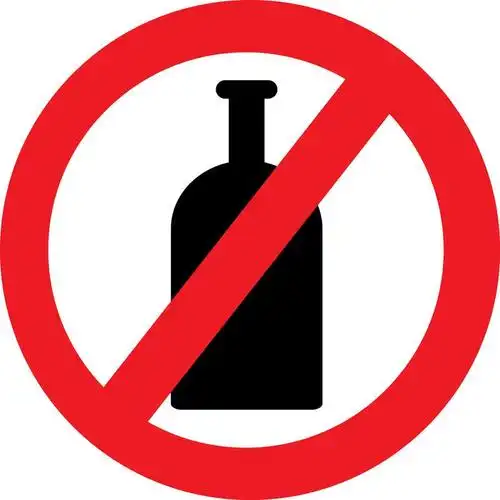The Silent Killer of Friendships: How Alcohol Destroys Bonds and Why You Should Quit Today
There is a peculiar tragedy in watching a decade-long friendship dissolve in the course of a single evening. It often begins with laughter, clinking glasses, and the warm glow of camaraderie—all fueled by alcohol. Yet as the night wears on, that same substance that promised connection becomes the very wedge that drives people apart. Alcohol, despite its social allure, has an uncanny ability to corrode the foundations of even the strongest friendships through regrettable words and actions. The truth is, many of us have experienced or witnessed the ways alcohol can turn a best friend into a stranger, and a fun night into a relationship's funeral.
One of the most immediate ways alcohol damages friendships is through the loss of inhibition. While a drink or two might make conversations flow more easily, excessive consumption strips away the filters we carefully maintain in our sober lives. The result? Thoughtless comments, harsh criticisms, and painful truths that are better left unsaid. A friend who would normally bite their tongue might suddenly unleash a torrent of pent-up resentment over some long-forgotten slight. The morning after brings not just physical hangovers but emotional ones—awkward text exchanges, strained phone calls, and the sinking realization that words spoken cannot be unspoken.
These verbal missteps are bad enough, but alcohol's true destructive power emerges through altered behavior. We've all seen the Jekyll-and-Hyde transformation that occurs when someone drinks too much. The gentle friend becomes aggressive; the cheerful one turns morose; the reliable friend becomes unpredictable. Alcohol-fueled actions—from making inappropriate advances to starting unnecessary arguments—create rifts that often prove impossible to mend. What makes these behaviors particularly damaging is that they feel like betrayals. "That wasn't me," the apologetic friend will say the next day. But the damage is done: trust has been compromised, and the friendship must now operate with guardrails that never existed before.
Perhaps most insidiously, alcohol creates patterns of behavior that slowly erode friendship foundations. The friend who always drinks too much and needs babysitting, the one who consistently cancels plans due to hangovers, or the drinking buddy who only seems available for alcohol-centered activities—these patterns gradually transform equal friendships into caretaker relationships. The sober friend grows resentful of always being the responsible one, while the drinking friend may feel judged and withdraw further. This slow deterioration often goes unnoticed until one day both parties realize their friendship has become a hollow shell of what it once was.
The financial aspect of alcohol-centered friendships also creates underlying tensions. When gatherings consistently revolve around bars, clubs, or expensive bottles of wine, the costs add up—both monetary and emotional. Friends who can't keep up financially may begin bowing out of events, creating distance. Those who continue participating might resent the expectation to always spend money on alcohol. Even when money isn't an issue, the realization that your friendship primarily exists in dimly lit establishments rather than in genuine connection can be sobering in itself.
Social media has amplified alcohol's damaging effects on friendships. Drunken photos, inappropriate comments, and tagged locations create permanent records of momentary lapses in judgment. These digital footprints don't just embarrass the person involved—they affect how others perceive them and their friendships. The college friend who tags you in unflattering party photos might be costing you professional opportunities. The buddy who live-streams a night out might be inadvertently sharing private moments that were never meant for public consumption. In our connected age, alcohol-induced poor judgment doesn't just affect those present—it reverberates through entire social and professional networks.
The tragedy of alcohol-damaged friendships is that the substance often masks the very loneliness it purportedly cures. Many people drink to connect, to relax, to feel part of something—yet in doing so, they undermine the authentic connections they crave. Real friendship requires presence, empathy, and emotional availability—all qualities that alcohol diminishes. The conversations that happen over drinks are often forgotten by morning, while the meaningful talks that happen during sober walks in the park become cherished memories.

Recognizing these patterns is the first step toward preserving and rebuilding friendships. The good news is that many relationships can recover when alcohol is removed from the equation. Sober activities—hiking, cooking together, attending concerts, or simply having coffee—allow friendships to develop depth and resilience. These alcohol-free interactions build trust through consistency and reliability rather than breaking it down through unpredictability.
For those struggling with alcohol's impact on their relationships, quitting or moderating drinking can feel daunting. Yet the rewards are immediate and profound. Waking up without regret, remembering conversations clearly, being fully present with friends—these small victories compound into transformed relationships. The friend who stops drinking often finds that their friendships become more authentic and less transactional. They're no longer bonding over a shared substance but over shared values, experiences, and genuine affection.
If you've seen alcohol damage your friendships—whether through your actions or others'—today is the day to make a change. Have that difficult conversation with a friend who drinks too much. Suggest alcohol-free activities. Examine your own drinking patterns honestly. True friendship is too precious to sacrifice at the altar of social drinking. The best moments of connection happen when we're fully present—not when we're numbed by alcohol. Your friendships deserve that level of presence, and so do you.
The path to preserving friendships begins with a simple realization: alcohol never enhanced any relationship that wasn't already strong without it. The laughter, the bonding, the sense of connection—these were always within you and your friends, not in the bottle. By choosing to nurture friendships without alcohol's influence, you're not missing out on anything. You're rediscovering what real connection feels like—and that's something no amount of alcohol could ever improve upon.




发表评论